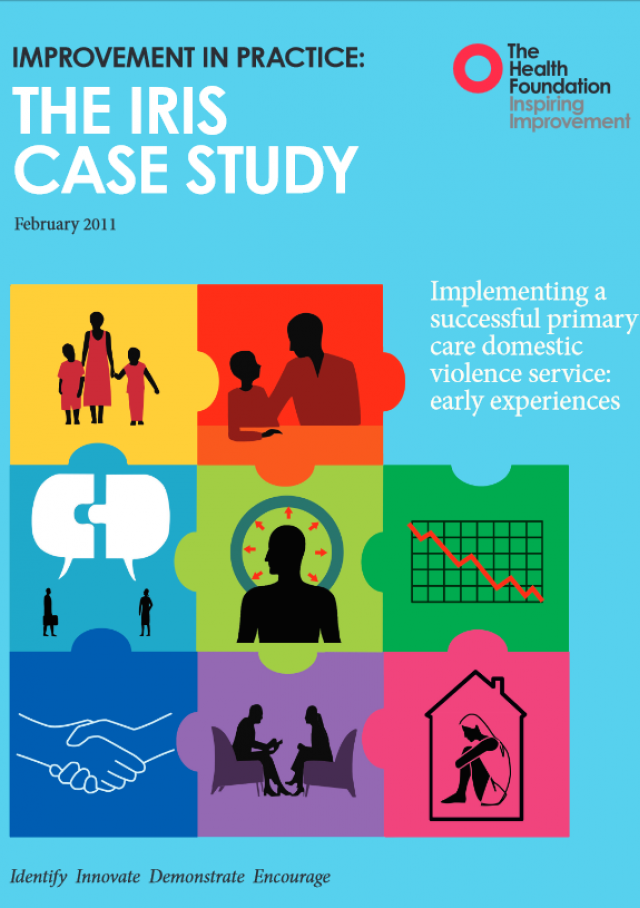Improvement in practice: The IRIS case study Implementing a successful primary care domestic violence service: Early experiences
February 2011

Key points
- There has been rapid acceptance of the IRIS implementation plan in Bristol.
- In Hackney, east London, an initial lack of a local champion and funding has meant that implementation has been slower.
- Ten other regions are showing interest in adopting the IRIS programme.
- A number of key lessons were identifed, including the need to identify a 'commissioning champion', making a strong economic case for the programme and delivering on promises.
Domestic violence is a major public health issue, and a risk factor for chronic ill health and premature death in women. Nevertheless, in primary care it is under-recognised and under-treated.
A training and support programme called Identification and Referral to Improve Safety (IRIS) is working to change this. The results from the first stage of the programme show a marked increase in referral to specialist domestic violence services, and significant improvement in the identification of women experiencing domestic violence.
This case study is of a programme which provided staff training and a support programme to bridge the gap between the voluntary sector and primary care, to harness the strengths of each, and to provide an improved domestic violence service.
Further reading
Work with us
We look for talented and passionate individuals as everyone at the Health Foundation has an important role to play.
View current vacanciesThe Q community
Q is an initiative connecting people with improvement expertise across the UK.
Find out more

